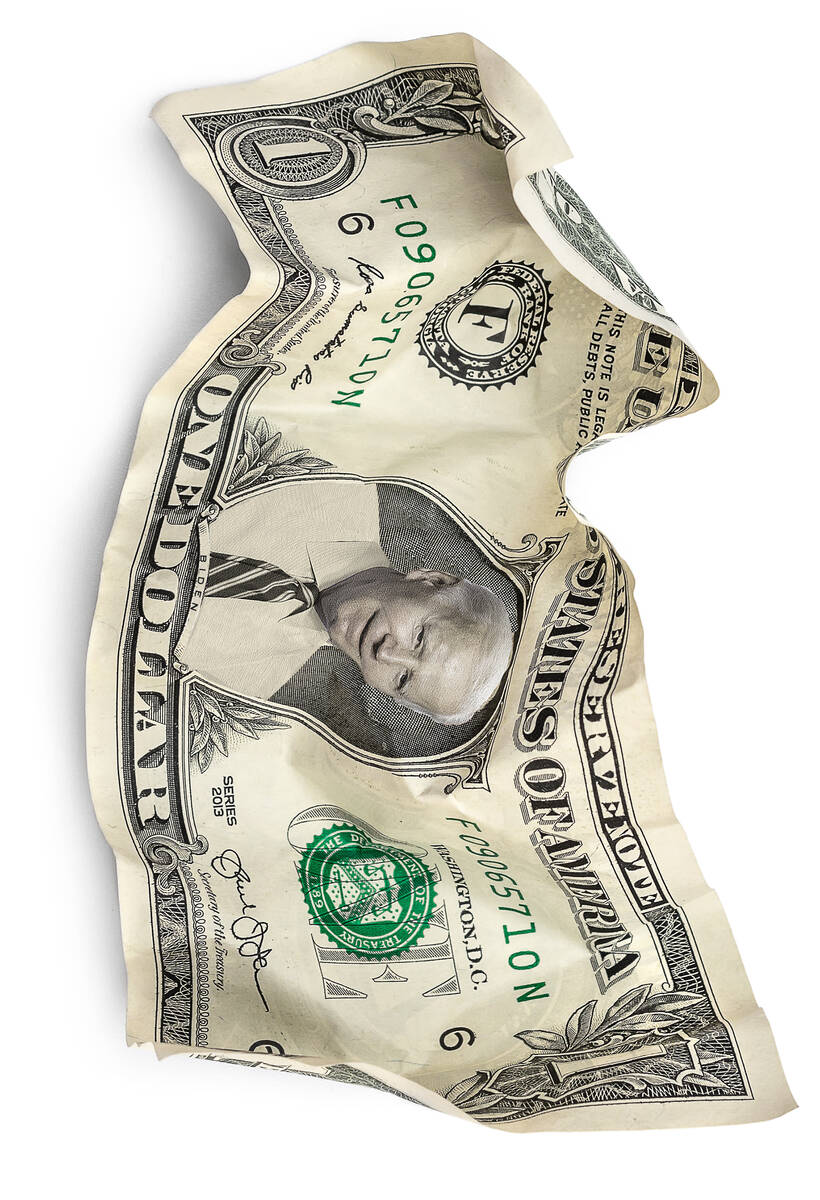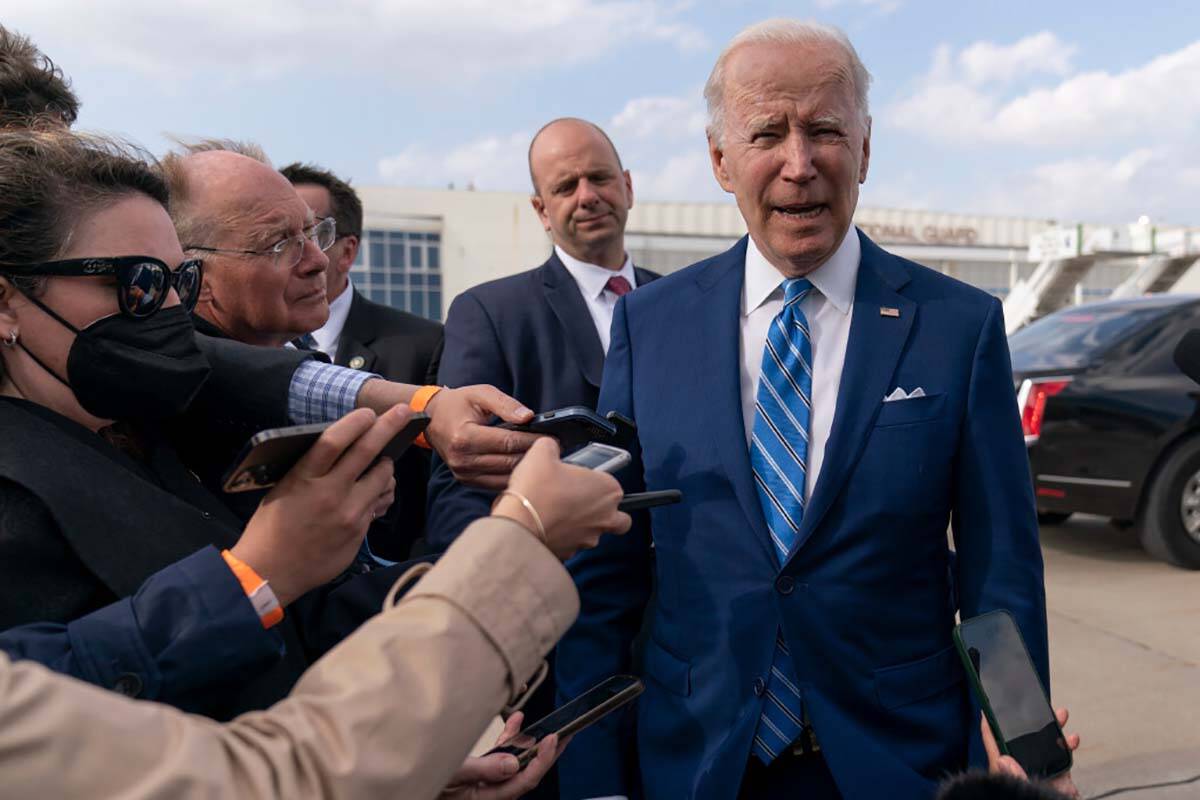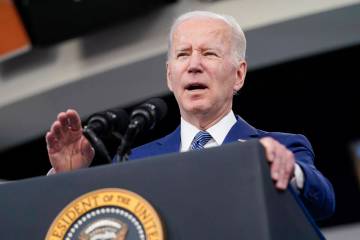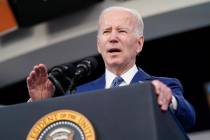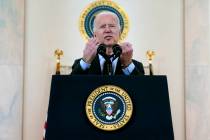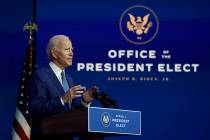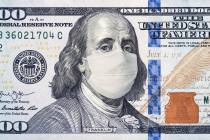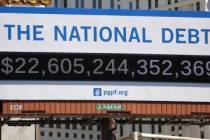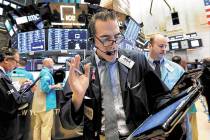RICHARD A. EPSTEIN: The Inflation Reduction Act
With great fanfare, the Democrats in Congress recently cobbled together small majorities to pass the Inflation Reduction Act of 2022. The act’s title is a massive misnomer because its key features have nothing to do with inflation. The moniker just offers a semantic cover for introducing yet another system of taxes, transfers and regulations that will reduce overall levels of income, thus making everyone poorer.
We know that this glum prediction is true because within a week of its passage, the Biden administration scaled back its estimates of both growth and inflation reduction, without explicitly acknowledging these unintended consequences. A closer look at the substantive provisions of the legislation made this downward revision a foreordained proposition.
The list in question starts with a $369 billion “investment to address energy security and climate change.” The difficulty with this simple-minded approach is that it assumes any new initiative can help both, when surely the opposite is true.
The grand phrase “energy security” is not intended to give the United States long-term energy independence by improving fossil fuel production, which would in turn reduce the output of harmful greenhouse gases per unit of production. Instead, the exact opposite is intended. The U.S. will initiate a huge shift to subsidies of wind and solar projects that will be dogged by the same problem they have always faced. These energy sources do not work when the wind does not blow and the sun does not shine. So without novel storage techniques not yet available, the increased reliance on these alternative technologies will make the energy base more unstable than it already is.
This downward spiral is already playing out in Europe where high energy prices have led desperate individuals to burn wood to stay alive. We will face that problem in the near future, from which no subsidy plan could save us.
Nor is the picture any better when we look at the other side of the equation, namely the reduction of global warming as a function of meeting emissions targets. Climate researcher Bjorn Lomberg pegged these increases as of 2100 at somewhere between 0.0009 degrees Fahrenheit and 0.028 degrees Fahrenheit. It is difficult to know what inputs could drive this model, but the results are as unreliable as they are trivial. The overall inefficiencies that are reduced into the production system make it quite likely that the general slowdown in technological progress could leave us with the worst of both worlds: more unreliable energy and higher global temperatures.
Don’t count, however, on the act’s other unwise provisions to pick up the slack. Any extension of the Affordable Care Act subsidies will — like all other transfer programs — come at the cost of lower economic efficiency, which in turn will be compounded by the certainty of postponing any internal reform of Obamacare so long as the new subsidies keep flowing in.
That mistake is paralleled by the equally unwise provision of allowing Medicare to flex its monopoly muscle by negotiating restrictions on drug prices. The implicit assumption here is that state regulation is better at controlling prices than competitive forces. That assumption is wrong for two reasons. First, there is no explanation why free entry will not lead to lower price increases if new alternatives are allowed to come to market. Second, these new innovations are less likely to occur if major companies know that their anticipated rates of return will be cut sharply by regulation. It often makes good sense to pay more for better new drugs than inferior old ones. Yet the fixation with prices disrupts that process of benign substitution.
Nor is there anything to be said for raising the corporate minimum tax rate to 15 percent while imposing a 1 percent tax (sure to increase) on corporate buybacks of company stock. The higher the return on corporate investment, the more investment there will be. Hence, any tax increases will certainly reduce growth unless they provide some benefit in return to the taxed parties, which is neither the intention nor effect of the bill. For general revenues, nothing beats a flat tax on a broad base, and these ad hoc proposals work in the wrong direction. Largely futile efforts to create some program for income redistribution work at cross purposes with inflation reduction.
The last objection, moreover, is on a premise as improbable as they come. There is no way that Congress can legislate a general reduction in tax levels so long as it champions these new programs. What typically happens is that the initial static projections get things off on the wrong foot by ignoring the simple point that higher taxes may often reduce revenues, which in turn can increase the overall deficit. These overall deficits, moreover, are prey to influences that come outside the act.
To give the most jarring example, the same day that the Biden administration announced its reduced estimates of both growth increases and inflation reduction, it also announced on the most slender of constitutional authority its massive student loan forgiveness program, which could easily inject more than $300 billion into the economy. Nothing whatsoever in this legislation blocks such collateral moves, so as long as the Democrats remain in power, the putative reduction in taxation from one piece of legislation is likely to be offset by new spending programs authorized in separate legislation.
These Democrats — and too many Republicans — perhaps act on the following dubious principle, namely, that nothing that takes place in the realm of taxing either income or wealth will influence the production of goods and services in the economy. But so long as incentives matter, this bold proposition has to be not only wrong, but also wrong-headed. As more dollars chase few goods, inflation remains a constant threat. I think that the Democrats as a block are incorrigible, because not one member of Congress deviated from the party line. The party needs a good shellacking if it is to come to its senses. Any predictions for this fall’s election?
Richard A. Epstein is a professor at the New York University School of Law, a senior fellow at the Hoover Institution and a distinguished service professor of law emeritus and senior lecturer at the University of Chicago. His Review-Journal column appears quarterly.



